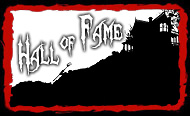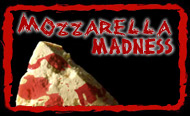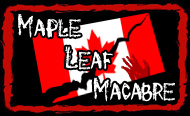
The Boy Who Cried Werewolf (1973)
Studio: Scream Factory
Release date: July 26th, 2016
Reviewed by: Brett Gallman (@brettgallman)
The movie:
The Boy Who Cried Werewolf often looks and feels like an anachronism. Released in 1973, it sometimes could be mistaken as being a long-lost dispatch from a decade earlier, if not even further back than that. For a good fifteen minutes, I found myself wondering how Universal though it was a good idea to release something that felt this retro at a time when the tide was clearly shifting far away from the stuff of silly matinee wolfman movies with dodgy effects. Soon, though, two things became clear: this isn’t exactly a silly movie (well, not intentionally so, anyway), and it plays off its seemingly anachronistic approach. It’s an old-school B-movie that’s been dragged kicking and screaming into the 70s, where it collides with the era’s emerging grisliness.
Those opening moments are nothing short of idyllic for Robert Bridgestone (Kerwin Matthews) and his son Richie (Scott Sealey). On a weekend camping retreat, the two laugh and make lighthearted plans for the evening, thinking nothing of any danger that might be lurking in the nearby woods. They soon have to take heed, however, when a werewolf suddenly pounces from the shadows and threatens to attack Richie. In his valiant effort to rescue his son, Robert is bitten by the wolfman, who winds up tumbling down the bottom of a hill, where he’s impaled on a wooden fence. Bummer. Naturally, nobody believes Richie’s version of events when he claims he and his old man were attacked by a werewolf: not his mom (Elaine Devry), not his doctors, not even his dad himself. Hell, the dad doesn’t even believe Richie when he begins to transform into a werewolf himself since, according to wolfman tradition, those who are cursed with “werewolfism” (as Robert’s psychiatrist calls it) don’t remember their rampages.
But holy shit, these are some pretty incredible wolfman outbursts. Just when it looks like this might still be a lighthearted little effort, something like I Was a Middle-Aged Weredad, Robert causes an innocent couple to swerve off the road and tumble to a fiery death in their car. Another TV repairman’s van goes up on two-wheels, careening into a tree before Robert eventually tears off some of his limbs. While the violence is hardly explicit, the cops on the scene do sift through the fallout, where they discuss severed heads and other missing body parts.
You’re left wondering what happened to the quaint little monster movie you might have expected from its title, premise, and poster art. Hell, even the film itself often feels like it should be a bit more lighthearted than it actually is, what with its vintage, Jack Pierce-inspired monster makeup, its colorful characters, and its generally hokey vibe at times. One recurring goof is the inconsistent lighting: obviously, most of a werewolf film is going to unfold under a full moon, but the frequent use of day-for-night shooting results in a humorous amount of obvious daylight. It’s especially goofy whenever the characters talk about it being “the middle of the night” or it being so dark that they can’t confirm the appearance of an obvious goddamn wolfman. Sometimes, the lighting is inconsistent from shot-to-shot, as one character will be standing in obvious sunlight, while the other will be under a pitch-black sky.
In a lighter movie, these would be the sort of innocuous goofs you could just go with, just as you do with any number of vintage creature features. Here, however, it clashes with what turns out to be a remarkably straight-faced movie, so much so that the juxtaposition becomes an interesting point of tension that wraps the skin of a charming little monster movie around the darker, more schlocky soul of a post-60s horror movie. While it’s far from being the most serious-minded film of the era in this respect (read: it’s certainly no Last House on the Left), one senses some general unease about the 70s in its plot developments.
Many of these are mirrored in Robert’s anxieties in both his personal and public life. Pointedly a middle-aged white man, he’s practically been emasculated by a divorce that’s left him stuck with a psychiatrist he doesn’t particularly care to see. Reluctant to engage in self-introspection, he lashes out at the “women’s lib” movement that “awakened” his wife, leading to the split. All he has is his son, who is now convinced he’s a werewolf. He (along with the town sheriff, another fuddy-duddy) is befuddled by the presence of a hippie commune that proves to be a thorn in his side later in the film. Robert’s lycanthropy becomes something of a metaphor for his repressed masculinity: in werewolf form, he’s able to indulge his primal urges and lash out at a world that’s slipping away from him (well, relatively speaking for the 1970s).
His assumption of the typical tragic wolfman arc is loaded with subtext: far from carving out some chance for redemption for Robert, it punishes him to the max, cementing the film’s oddly incongruous tone. It ends with the suggestion that Robert’s anxieties are well-founded—there’s no place for him in a weird new world overrun by pop psychology, feminism, and hippies. This is no country for old men—much less old wolfmen, so it only follows that Robert’s inevitably gruesome fate unfolds in front of his painfully earnest son. It’s a genuine gut-punch, even if you’re familiar with werewolf lore that practically demands this of its cursed protagonists, and it carries an additional layer of symbolism here: just as the film feels like a requiem for an outmoded sense of manhood, so too does it mark the end of an era for harmless, silver-age monster movies.
That The Boy Who Cried Werewolf played as part of Universal’s last old-school double feature is apt: like its twin bill partner Sssssss, it’s a film caught between vintage monster movie thrills and an encroaching grittiness. Both of these films ultimately feel like they’re resisting that last, looming turn towards complete nihilism, and it’s fitting that both fail to do so.
The disc:
Scream Factory’s original plan was to appropriately pair these films together for a double feature Blu-ray release; however, some apparent hang-ups prevented that from happening, so we’re left with two separate releases of these curious efforts. Arriving a couple of months after Sssssss, The Boy Who Cried Werewolf makes its digital debut, bypassing DVD altogether with a rather bare-bones Blu-ray presentation. A photo gallery and a trailer serve as the meager supplements to an otherwise solid presentation—this is one of those cases where it’s nice to just finally have the film available on disc, so this release satisfies, especially since The Boy Who Cried Werewolf is an unexpectedly intriguing reflection of a transitioning age. comments powered by Disqus Ratings:








